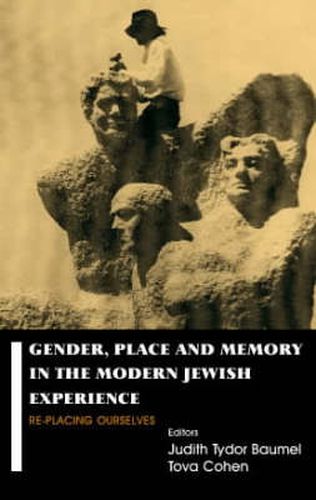Readings Newsletter
Become a Readings Member to make your shopping experience even easier.
Sign in or sign up for free!
You’re not far away from qualifying for FREE standard shipping within Australia
You’ve qualified for FREE standard shipping within Australia
The cart is loading…






This work is an expression of how the different memories of different gendered experiences affected the Jewish attitudes towards modernity. Focusing on three geographical centres-pre-war and wartime Europe, the United States and Israel, the 15 articles provide a backdrop to understanding the variation of Jewish life and Identity. The book opens with seven articles that deal with the European arena. Gershon Bacon explores the search for identity among Jewish young women in inter-war Poland; Dalia Ofer of the Hebrew University discusses Cecilia Slepak’s studies of women’s lives under adversity, conducted in the Warsaw Ghetto during the early 1940s. Eli Tzur analyses three cases of women’s political leadership in the Zionist Hashomer Hatzair movement in wartime. Ingrid Strobl probes the family history and political motivations of women active resistance fighters in German-occupied Europe. Atina Grossman examines the lives of the Jewish Displaced Persons from a gendered viewpoint, Petri Raivo explores the memories of the Holocaust and World War II in Finland and Insa Eschebach examines half a century of commemoration of Jewish inmates at the Ravenbrueck Memorial.
$9.00 standard shipping within Australia
FREE standard shipping within Australia for orders over $100.00
Express & International shipping calculated at checkout
This work is an expression of how the different memories of different gendered experiences affected the Jewish attitudes towards modernity. Focusing on three geographical centres-pre-war and wartime Europe, the United States and Israel, the 15 articles provide a backdrop to understanding the variation of Jewish life and Identity. The book opens with seven articles that deal with the European arena. Gershon Bacon explores the search for identity among Jewish young women in inter-war Poland; Dalia Ofer of the Hebrew University discusses Cecilia Slepak’s studies of women’s lives under adversity, conducted in the Warsaw Ghetto during the early 1940s. Eli Tzur analyses three cases of women’s political leadership in the Zionist Hashomer Hatzair movement in wartime. Ingrid Strobl probes the family history and political motivations of women active resistance fighters in German-occupied Europe. Atina Grossman examines the lives of the Jewish Displaced Persons from a gendered viewpoint, Petri Raivo explores the memories of the Holocaust and World War II in Finland and Insa Eschebach examines half a century of commemoration of Jewish inmates at the Ravenbrueck Memorial.